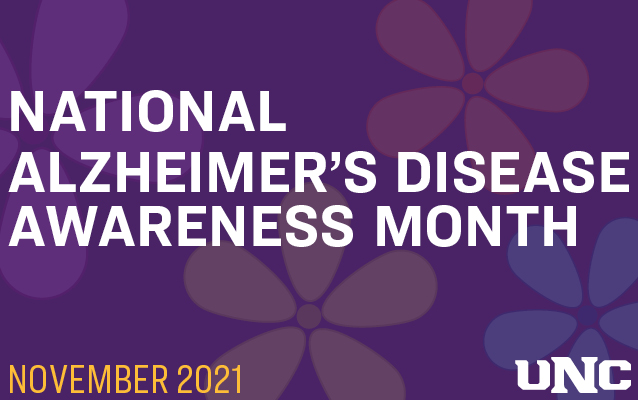Alzheimer’s Awareness Month is an opportunity for sufferers, caregivers, professionals, press and media, and communities to work together against dementia as well as raising awareness of the realities of it, while combating stigma and misinformation and lobbying the government for better help and care. There are currently more than 6.2 million Americans living with Alzheimer’s and that number is expected to surpass 13.8 million by 2060.
While there are no drugs or treatments that can cure Alzheimer’s disease, there are numerous studies in progress to improve early detection. With early detection, doctors hope to diagnose and begin treatment when brain tissue is healthier to help slow the progression of the disease. Current Alzheimer's treatments may temporarily improve symptoms or slow down memory loss and difficulties with thinking and reasoning, or they may attempt to manage the disease's behavioral symptoms.
An outreach program to help African-Americans in the Atlanta area is underway by Emory University’s Alzheimer’s Disease Research Center (ADRC). ADRC’s research has shown that African-American seniors are two to three times more likely to develop Alzheimer’s compared to their white counterparts. Some of this is due to African-Americans being reluctant to see doctors about memory loss due to experience or perceived discrimination by medical providers. In his proclamation on National Alzheimer’s Disease Awareness Month, 2021, President Biden addressed the need to ensure that people who are disproportionately affected by Alzheimer’s are ‘seen, heard, and included in the quest to treat and prevent these conditions’.
In the months leading up to November, there are often many “memory walks” to raise awareness about the disease and raise money for research. You can find a walk near you (many are now occurring virtually due to the pandemic) or find out more about how you can get involved.
Take Action:
- Alzheimer’s Foundation of America
- Educational workshops and continuing education trainings
- Support services for caregivers
- Federal Government Resources by U.S. Department of Health and Human Services (HHS) and National Institute on Aging
- Colorado Chapter of Alzheimer's Association
- Learn more about Dementia
- Walk to End Alzheimer’s
- Stay informed and educated with the End ALZ YouTube Channel
- Alzheimer’s and the Eyes: Connections, Early Detection and More
- Attach the Alzheimer’s Awareness design elements to your emailsignature and/or use it in your social media
For additional education and personal development related to diversity, equity and inclusion, the following resources are available: DDEI Education and Resources, DEI & Antiracism Resources from the UNC Libraries, the Education Equity Toolkit from the Colorado Department of Higher Education, and the UNITE workshops for faculty, staff, and students.


